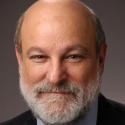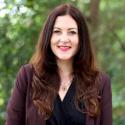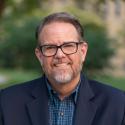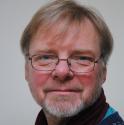2024 Academic Network
- Image
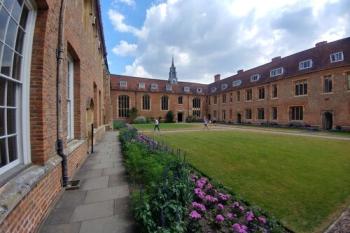
As Christian academics we often experience isolation. Being evangelicals within a secular university or liberal seminary setting isolates us from our peers, while at church, underlying anti-intellectualism may isolate us from our brothers and sisters in Christ. We may experience isolation because of the solitary nature of research, writing, and lecture preparation, or because of our own introverted and reclusive personalities.
At the same time, because of the far-reaching influence of the classroom and higher education in shaping leaders and the next generation, every Christian scholar possesses an outsized potential for multi-generational impact. Our calling is to bring glory to Christ in the university or the seminary where we serve. This is why, as followers of Christ in the academy, we must be intentional about connecting with other like-minded colleagues.
The primary purpose of the ELF Academic Network is to gather together Christian scholars throughout Europe for equipping, uniting, resourcing, prayer, and accountability. At the 2024 Network, you will be blessed by outstanding presenters. Each one is a recognised scholar who, in their own academic work, is living and modelling what they teach. You will have opportunities to ask questions, discuss issues with your colleagues, and reflect on how these principles should change the way you think, live, and teach. Prior preparation will be set for all applicants.
What Network Participants Are Saying
- "Being at the Forum is very encouraging to me because I have the opportunity to get to know leaders from other organisations who share the same burdens and concerns I do. I am learning new ways to negotiate my faith while serving my Bible school, the church, and the community of faith I belong to back home."
- Marius Ban, Lecturer, Romania - "As a medical doctor, an assistant professor, a PhD student, and a researcher, a main part of my ministry is to be a witness for Christ in academia. Words cannot fully convey what the ELF and its Academic Network have meant to me. I am now a lot better equipped to serve both Christians and non-Christians. I cannot fully imagine how the consequences of this will ripple outward for the glory of God."
- Hristian Staykov, Medical Doctor and Assistant Professor of Pharmacology, Bulgaria
Applicants should be teaching or leading in a university, seminary, bible institute, or other post-secondary educational institution or graduate students who hope to serve Christ in the academy. This Network will help academicians from a wide spectrum of disciplines to think about their discipline from a Christian worldview, attain excellence in teaching and research, share Christ with others, and maintain spiritual fervor.
Network Leadership
Network Speakers
Darrell L. Bock is Senior Research Professor of New Testament Studies at Dallas Theological Seminary in Dallas, Texas, as well as Executive Director of Cultural Engagement for the Hendricks Center for Christian Leadership there. An author or editor of about fifty books, his special fields of… Read more
Lindsay Brown is a native of Wales. He studied European history at Oxford (MA) and theology at the Free Faculty of Theology at Vaux-sur-Seine, near Paris, under Henri Blocher. Lindsay served as the International Director of the Lausanne Movement from 2008-2016. He has worked with the… Read more
John Dickson’s story is eclectic. Starting out as a professional singer-songwriter, he now works as an author, speaker, historian, and media presenter. He was the Founding Director of the Centre for Public Christianity (2007-17). He has published over 20 books, two of which became television… Read more
Per Ewert is the director of The Clapham Institute, Sweden’s leading Christian think tank and research institute. His PhD describes the political process which shaped Sweden into the world's arguably most secular-individualistic nation. Per is the author of several books on the Bible,… Read more
Kristi Mair teaches philosophy, ethics, and apologetics at Oak Hill College in London, UK, where she also provides pastoral support for F students. She holds a degree in philosophy and theology, as well as an MA in philosophy of religion and ethics. She is currently working on her PhD in the… Read more
David Sandifer was born and raised in France, of American parents. He holds a Ph.D. in history, from the University of Cambridge (2014). He spent 20 years in pastoral ministry in the U.S. and Australia, and also worked for a Christian public advocacy organisation in Australia, where he co-… Read more
Ed Stetzer, Ph.D., is the Dean of Talbot School of Theology at Biola University and Scholar in Residence & Teaching Pastor at Mariners Church. He has planted, revitalised, and pastored churches; trained pastors and church planters on six continents; earned two master’… Read more
Christopher Townsend chairs the editorial group of Cambridge Papers, a quarterly publication with the strapline ‘Towards a Biblical Mind’, which aims to help Christians engage with a complex and changing world (www.cambridgepapers.org). He wrote ‘… Read more
Network Programme
Sunday, 26 May
How can Christian academics live faithfully in what is largely a secular environment? This is a question that has been forced upon us as our culture has become so post-Christian. In this session, we will begin with a few opening remarks about the secular academic environment and then generate a conversation about what it requires of us as listeners as well as students of culture. How we approach the space, how we engage it, the tone it requires and how to deal with the results that often are challenging are among the topics to be covered.
This session will offer an overview of the ‘strange new world of gender’, its key ideas and its impact on society. We will look at the roots of ‘gender identity’ theory, the idea that sex is ‘assigned at birth’, the rise in the number of people identifying as trans or non-binary, the contested nature of medical care for gender-questioning patients, and the political struggles over ‘trans rights’. We will then consider several key biblical themes (perspectives on our physical bodies, sex, gender, identity, and suffering) and biblical attitudes (such as compassion, conviction, courage, and wisdom) which play a part in framing a Christian response.
Monday, 27 May
Evangelical Christians are bound to find themselves in challenging situations of candid or open opposition in their worklife and in public debate on social media and elsewhere. How can we use arguments and our conduct as a way to represent the kingdom of God in these situations? This session will share biblical principles and personal experiences as advice on how to take a biblical stand founded on truth, humility and justice when facing challenges in the public square.
A growing number of once-committed Christians are questioning their faith, leaving the church, and even identifying themselves as “exvangelical.” Why are they walking away and what can we do about it? This session unpacks the faith deconstruction movement, provides a biblical analysis, and suggests ways Christian leaders can respond.
Tuesday, 28 May
What can we learn from some of Europe's leading apologists like John Stott, Martyn Lloyd-Jones, Francis Schaeffer, Jurgen Spiess, Michael Green, and John Lennox? In this session, Lindsay Brown will reflect on years of partnership with these leading apologists. He will share insights, lessons learned, and best practices from these modern "Apostle Pauls" who persuasively argued why the Gospel is true.
In our engagement with the world, evangelicals often wrestle with the tension between the 'creation mandate' and the 'gospel mandate'. But there is a third mandate for the people of God that is just as central to our witness: the 'holiness mandate'. This seminar will unpack the three mandates and will explore applications to the particular context of Christians working in the academic sphere.
Wednesday, 29 May
The process of academic engagement can often be confusing. This session will discuss writing processes, explain best practices, and answer questions on how to do academic research and writing.
Interacting with both recent and ancient accounts of rhetoric, this session will attempt to set the theme of Christian persuasion on a strong biblical foundation. Specifically, Aristotle’s influential work on the topic will be brought into conversation with Scripture to provide a positive framework for Christian engagement in a sceptical world.

